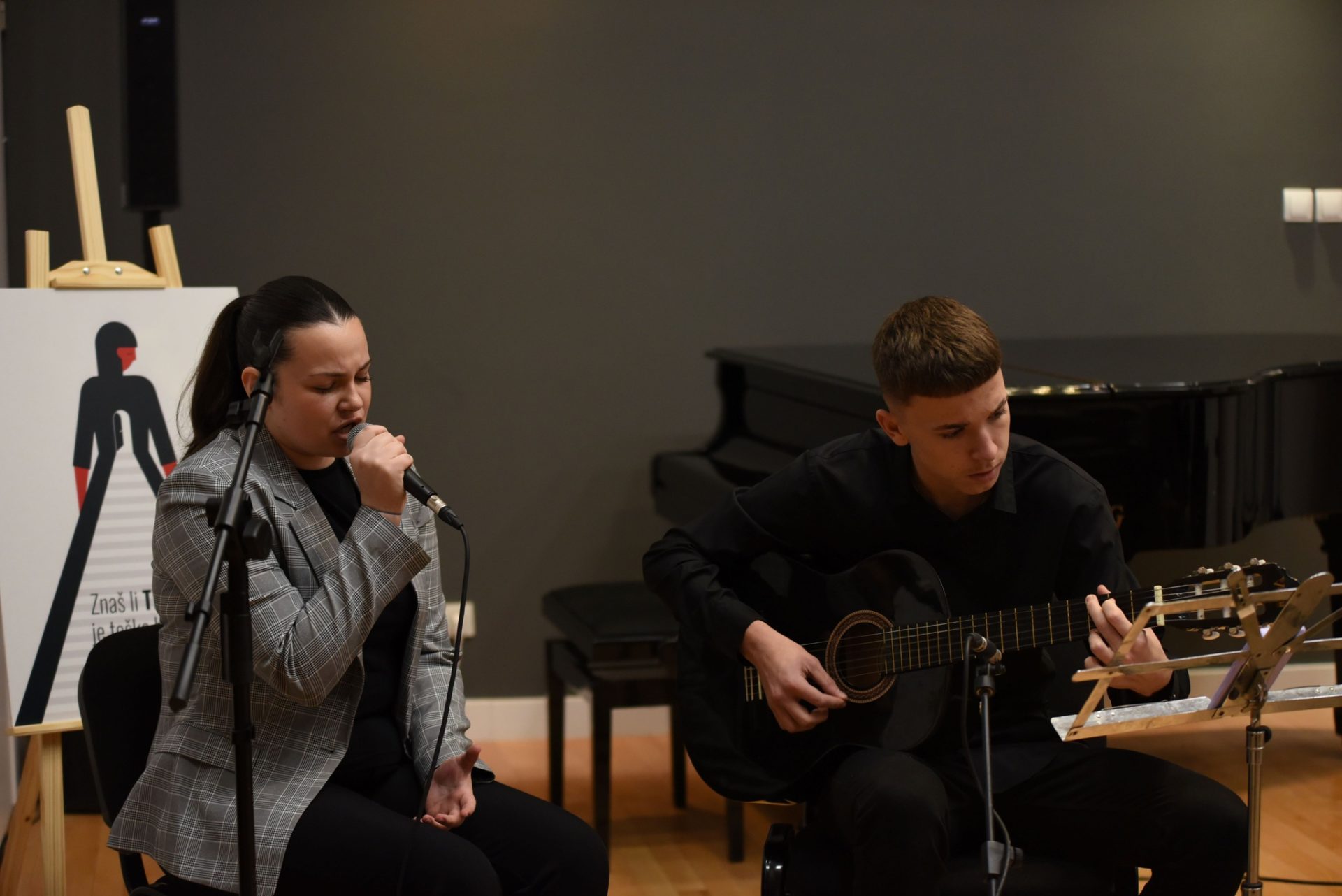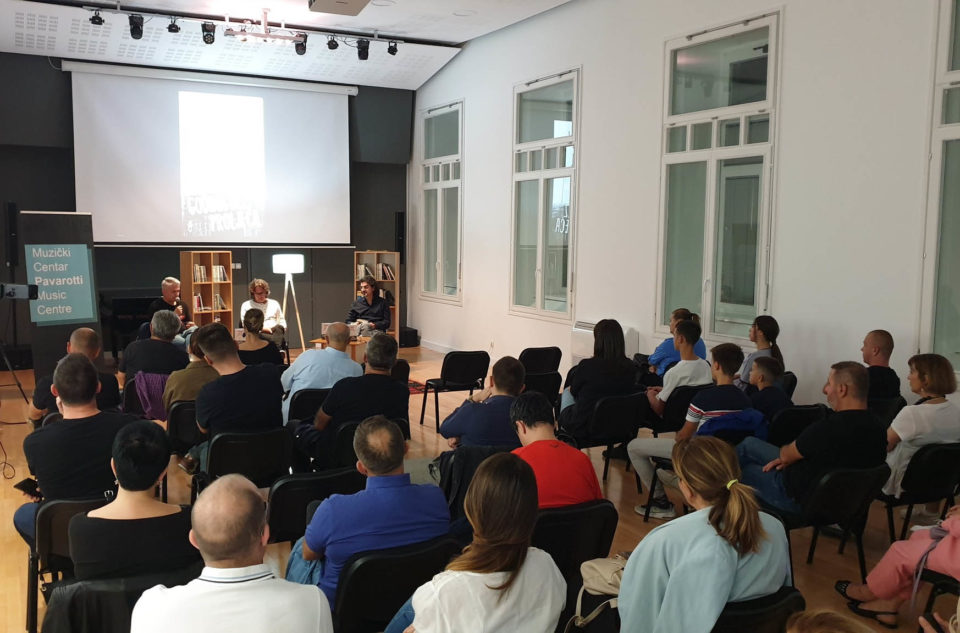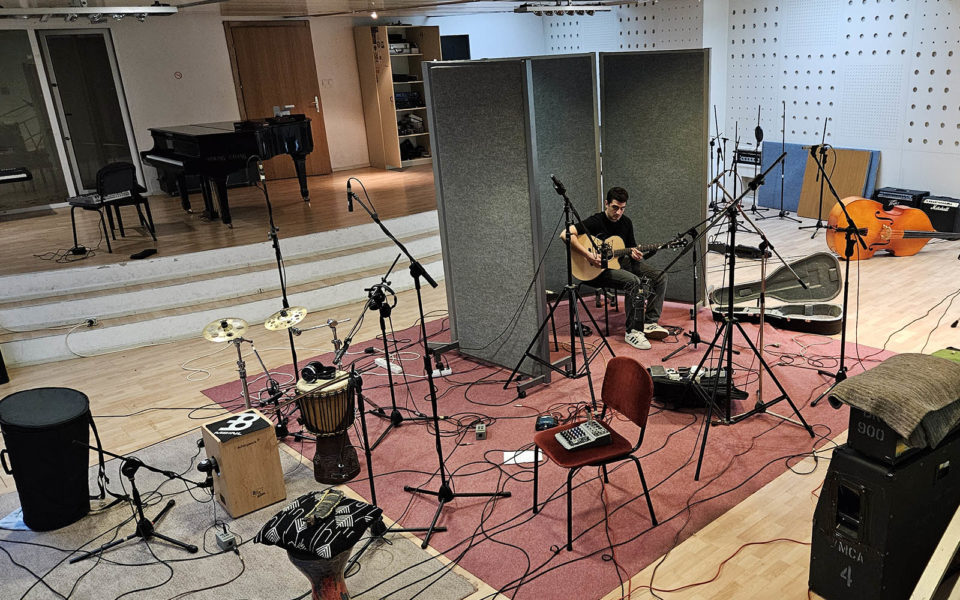
On Mostar’s cultural map, alongside the National Theater and the Old Bridge, you will find the Pavarotti Music Center (MC Pavarotti) – a point of intersection between art and history.
The center was officially opened on December 21, 1997, within the premises of the former Svetozar Ćorović Elementary School. The project was initiated by the British non-profit humanitarian organization War Child UK, with the support of artists such as Pavarotti, Jovanotti and others.
Luciano Pavarotti, the son of a baker and a factory worker, is best known as an opera singer, humanitarian, and UN Peace Ambassador. This man, who experienced World War II firsthand, has a big heart and a profound legacy.
The music center bearing his name was established in post-war Bosnia and Herzegovina to provide clinical music therapy services. Mostar, a city where so many children were traumatized by the 1992-1995 war, is home to a place that continues to embody peace through art to this day.

“Our greatest success is the fact that we have survived these 28 years, that is, that in a deeply divided city we have managed to develop and preserve the ideas of cultural equality, exchange, and cosmopolitanism,” said Tajma Guzina, the director of MC Pavarotti.
MC Pavarotti unites young people across national and religious boundaries, providing them the opportunity to cultivate skills and self-expression. They offer workshops and courses in guitar, modern dance, piano, trumpet, and choir, as well as a jazz master camp.
The center also hosts lectures, seminars, and opportunities for collaboration with other organizations. At its heart is a studio equipped for music production, composition, arrangement, songwriting, video creation, and cover design. This creative hub has supported the work of renowned artists such as Tifa, Esma Redžepova, Dubioza Kolektiv, and Goran Bregović.
In April this year, the band Balkalar from Zagreb recorded songs for their second album in Studio A, while at the end of May, a recording was made by the choir of the Karađoz-Bey Madrasa.
Guzina is extremely proud of MC Pavarotti’s work and its many educational and cultural activities. This includes the regional festival “Guitar Jam on the Way to the South,” the MixArt Festival, and Jazz Camp.

MC Pavarotti has also made a huge contribution to developing the cultural identity of post-war Mostar. This is attested to by the numerous foreign tourists who visit the center as well as children from across Bosnia and Herzegovina, the region, and Europe.
“Everyone who comes has already heard of MC Pavarotti and wants to get to know our work more closely,” said Guzina.
MC Pavarotti is currently implementing “Soundscapes of the Western Balkans,” a project that gathers twelve young musicians from across the Western Balkans in a mentoring program. This is part of a broader EU-funded initiative, “Culture and Creativity for the Western Balkans,” that focuses on encouraging regional dialogue and harnessing the socioeconomic potential of strengthening the cultural and creative sectors.
Tajma Guzina emphasizes that MC Pavarotti encourages young people to stay positive in the face of challenges, to believe in themselves and their talents, and to embrace and respect others, especially those who are different. This music center at the site of a former school serves as a meeting place for the education and encouragement of children and youth. Supported by artists, it nurtures new creators and provides space for existing ones. Founded in a post-war country, in a city where war wounds and divisions have not yet healed, it unites nationalities and religions through sincere and common sentiments- the drive for creativity and the enjoyment of what has already been created. It is a place where the past meets the future, demonstrating that new things can be created even in a space full of memories of loss.
_______________






